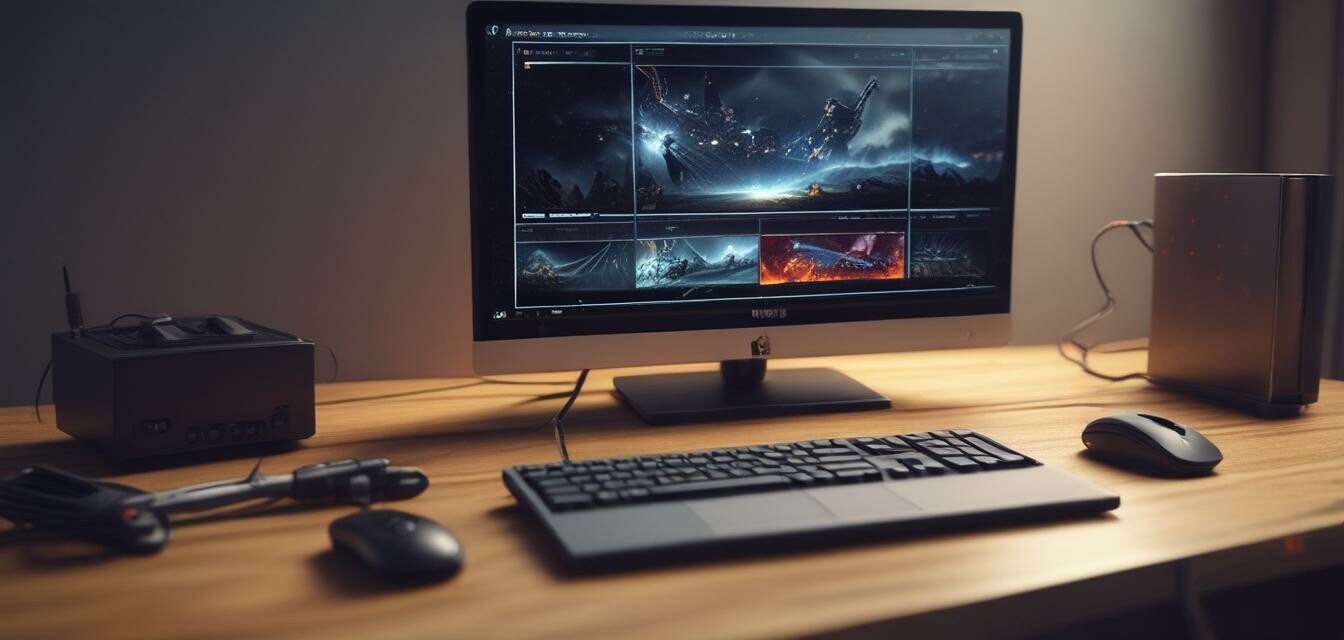
How to Optimize Your Internet for Online Gaming
In today's world, online gaming is more popular than ever. However, a seamless gaming experience hinges on a well-optimized internet connection. This article provides practical advice to configure your internet connection specifically for gaming performance, ensuring you enjoy lag-free gameplay. Here, we will explore various tips and tricks, from choosing the right hardware to configuring your settings for maximum effectiveness.
Key Takeaways
- Use a wired connection for more stable gameplay.
- Optimize your router settings for gaming.
- Consider Quality of Service (QoS) settings.
- Regularly monitor and manage your network usage.
- Be aware of your ISP capabilities and plans.
1. Understanding the Internet's Role in Gaming
Your internet connection is the backbone of your online gaming experience. A slow or unreliable connection can lead to lag, buffering, and ultimately a frustrating experience. Therefore, understanding how your internet works is the first step towards optimization. You can take advantage of features provided by your Internet Service Provider (ISP) that are best suited for gamers. For more on data plans, visit our Data Plans and Pricing page.
2. Wired vs. Wireless: Which is Better?
For most gamers, a wired connection is the preferred choice. Here's a quick comparison:
| Connection Type | Speed | Stability | Interference |
|---|---|---|---|
| Wired | Usually higher speeds. | More stable. | Less prone to interference. |
| Wireless | Varies significantly. | Can be unstable. | Prone to interference from various sources. |
3. Optimize Your Router Settings
Configuring your router settings can greatly affect your gaming performance. Here are some essential tweaks to consider:
- Change the channel: Select the least congested channel for your WiFi. This can minimize interference and improve your connection speed.
- Adjust the bandwidth settings: Ensure that gaming devices have priority over other bandwidth-consuming devices.
- Enable QoS: Quality of Service (QoS) settings prioritize gaming traffic over other data, leading to a more stable connection.
4. Monitor and Manage Your Network Usage
Having multiple devices connected can slow down your internet speed. Regular monitoring is key to an optimized gaming experience:
- Limit background usage by turning off devices that aren't being used.
- Use network management tools to see device usage in real-time.
- Schedule big downloads or updates during off-peak hours.
5. Choosing the Right Internet Service Provider (ISP)
Your ISP is crucial to your gaming performance. To find the best plan for you, consider:
- Speed requirements: As a gamer, go for a plan with higher download and upload speeds.
- Data caps: Choose an unlimited data plan to avoid being throttled during gameplay.
- Latency: Look for ISPs with low latency and ping times for smoother gameplay.
6. Additional Hardware Considerations
Investing in the right equipment can further enhance your gaming experience:
- High-Speed Routers: Consider upgrading to a router designed for gaming for faster processing.
- WiFi Extenders: Use extenders to increase your network range if you face connectivity issues in larger homes.
- Network Security Devices: Protect your network from unwanted access and maintain speed.
7. Troubleshooting Common Issues
Even with the best setup, issues can arise. Here are some common problems and quick fixes:
| Issue | Solution |
|---|---|
| Frequent disconnections | Restart your router and check for firmware updates. |
| High latency | Check for background downloads or high-usage applications. |
| Slow speed | Switch to a wired connection if possible, or optimize your router settings. |
Pros
- Improved game responsiveness.
- Fewer interruptions during gameplay.
- Better overall network management.
Cons
- Initial setup may require effort and time.
- Investing in hardware can be costly.
Conclusion
Optimizing your internet for online gaming is not just a one-time task; it requires continuous monitoring and adjustments. By following the tips outlined here, you can significantly enhance your gaming experience, reduce lag, and enjoy smoother gameplay. For more helpful advice on optimizing your home network, check out our Tips and Tricks category.
